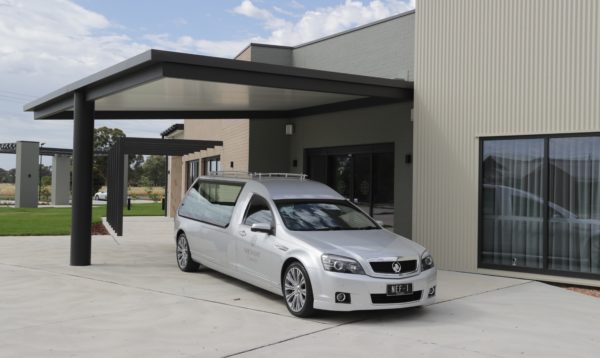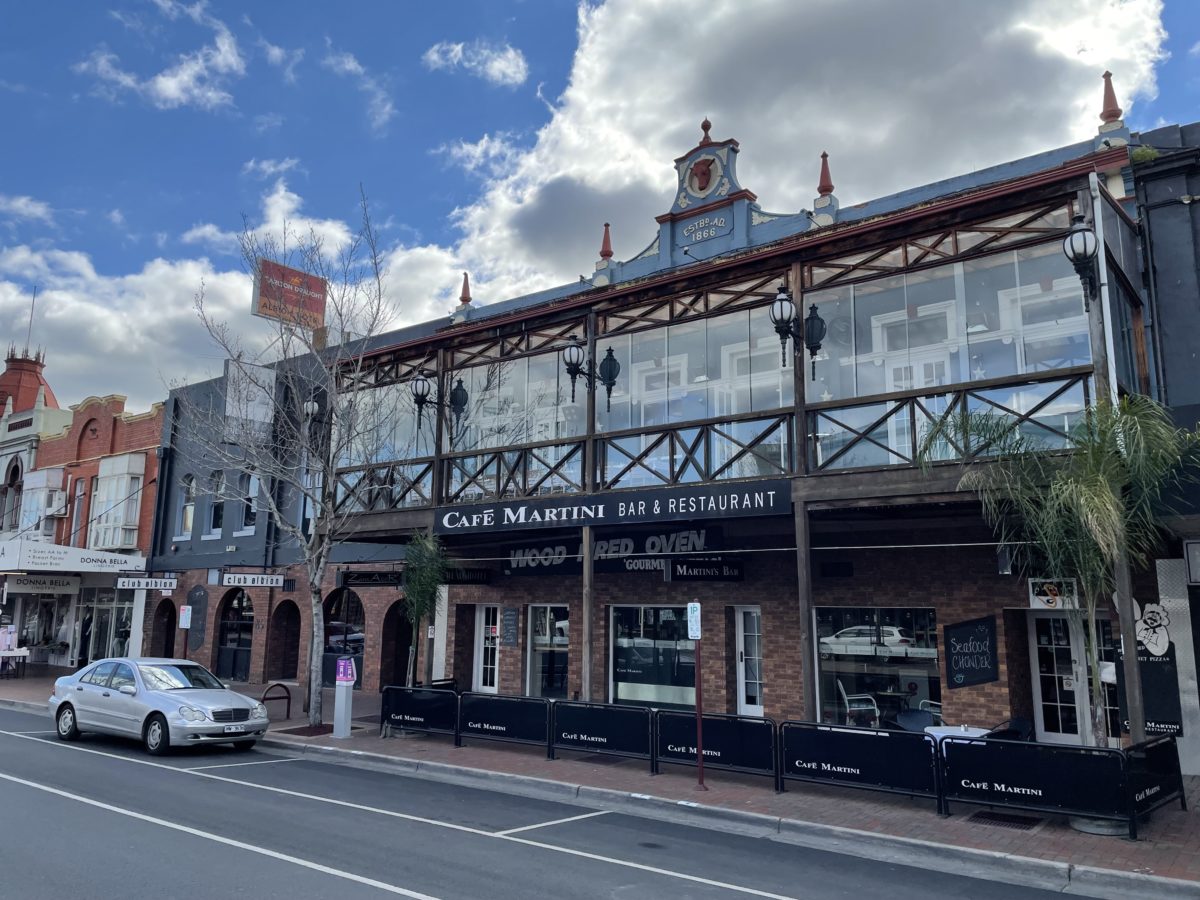Victoria’s regional city of Wangaratta is growing its solar energy supply, with two local businesses — one in a heritage building and one in a new build — showing the suitability of solar for a variety of applications.
Both installations were financed through the Sustainable Australia Fund, via Environmental Upgrade Agreements, which support works that improve the environmental performance of built assets.
Co-directors of North East Funerals, Christine and John Haddrick, incorporated a number of energy-saving initiatives into their new building but wanted to try to further reduce their business’s substantial electricity bills.
The 40 kW solar system that they financed through the Sustainable Australia Fund is expected to save at least $245,000 over the life of the installation, and displace 993 tonnes of CO2 emissions over the same period.
John Haddick said last week that the business recently received its first electricity account since the rooftop array started generating, and found, “we had exported more energy to the grid than we used”. He added that the resulting financial savings, “are considerable, and we expect the system to have paid for itself within four years”.

Sustainable Australia Fund
Making sustainability upgrades easier
The Sustainable Australia Fund offers up to 100% of project finance, at competitive rates, over periods of up to 20 years, and on flexible terms; for example, repayments can be suspended for up to three-quarters of the loan period and they may be split between landlord and tenants.
Projects that qualify as environmental improvements include replacing single glazing with double or triple-glazed windows that retain warmth in winter and keep interiors cooler in summer; re-roofing — again to achieve greater energy efficiencies; installation of LED lighting; and the addition of rooftop solar and/or battery energy storage.
Wangaratta’s Cafe Martini is part of the former Bull’s Head Hotel, which was originally constructed in 1866, but the heritage building comfortably accommodated a 15 kW rooftop array.
The cafe restaurant is projected to save $3,164 during its first year of solar-energy supply, and to reduce its CO2 emissions by 24 tonnes a year.
“I’m really looking forward to seeing how much of an impact it makes on our electricity bill,” said cafe owner, Mark Sorrensen, who added, that if the system generates enough solar, feeding that excess back into the grid “is beneficial for all of us”.
A community perspective
The mayor of Wangaratta, Councillor Dean Rees, agreed wholeheartedly, saying the Sustainable Australia Fund, “brings environmental benefits for the rural City of Wangaratta, which is important to the whole community.”
He noted, “This program gives our local businesses a great avenue to access finance over a longer term, and enables them to reduce operational costs and improve building value.”
Originally established in 2002 by the City of Melbourne, to help overcome the barriers to environmental upgrades, such as business cash flow and the split incentive between tenants and landlords to pay for building improvements, the Sustainable Melbourne Fund as it was then known was substantially recapitalised in 2019 to offer a total loan facility of $200 million to applicants throughout Australia, and was renamed to reflect its national remit.
Among the flexible loan arrangements it offers to benefit landlords and tenants is the ability to transfer the loan as part of the sale of an improved building.
The Sustainable Australia Fund works with a network of local installation partners dedicated to helping Australian businesses realise their dream of generating their own energy.
In Wangaratta, both of these latest solar arrays on commercial properties were installed by Wangaratta-based Kennedy Electrical & Solar, which compounded the benefits of the funding within the local community.
This content is protected by copyright and may not be reused. If you want to cooperate with us and would like to reuse some of our content, please contact: editors@pv-magazine.com.









By submitting this form you agree to pv magazine using your data for the purposes of publishing your comment.
Your personal data will only be disclosed or otherwise transmitted to third parties for the purposes of spam filtering or if this is necessary for technical maintenance of the website. Any other transfer to third parties will not take place unless this is justified on the basis of applicable data protection regulations or if pv magazine is legally obliged to do so.
You may revoke this consent at any time with effect for the future, in which case your personal data will be deleted immediately. Otherwise, your data will be deleted if pv magazine has processed your request or the purpose of data storage is fulfilled.
Further information on data privacy can be found in our Data Protection Policy.